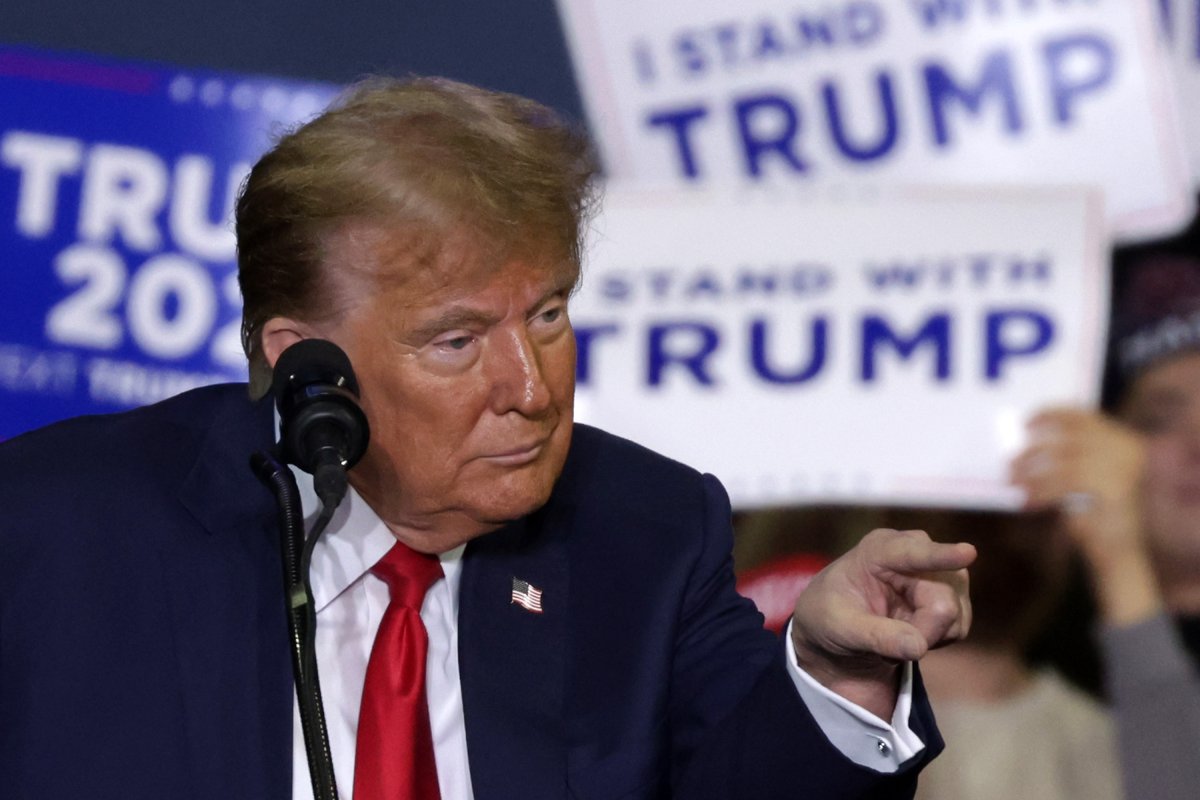Former President Donald Trump evoked the dropping of atom bombs on Hiroshima and Nagasaki as he argued that he should be immune from prosecution.
Trump has argued he is immune from prosecution on charges that he plotted to overturn the results of the 2020 election in the run-up to the deadly riot by his supporters at the U.S. Capitol on January 6, 2021.
He has pleaded not guilty to the charges, including conspiracy to defraud the United States, and claimed the case and other criminal prosecutions he is facing are politically-motivated.
The trial is scheduled to begin on March 4, but U.S. District Judge Tanya Chutkan in December put the case on hold as Trump pursues his claims that he cannot face criminal charges for acts he says fell within his official duties as president. A federal appeals court earlier in January expressed skepticism as they heard the arguments from Trump's legal team.

Trump has repeatedly argued that presidents should have total immunity from prosecution, saying this week that it should even cover acts that "cross the line."
At his Saturday rally in Manchester, New Hampshire, Trump continued to make that case. He claimed that President Harry Truman would never have dropped atomic bombs on Japan if he was worried he may face criminal charges.
"Take a look at Harry Truman," he said. "He wouldn't have done… If you think Hiroshima, not exactly a nice act, but it did end the Second World War probably, right? Nagasaki. He wouldn't be doing that. He said, 'I do not want to do that because my opponents will indict me.' You have to give a president full and total immunity."
The United States dropped an atomic bomb on Hiroshima on August 6, 1945, killing an estimated 140,000 people. A second attack on Nagasaki three days later killed an estimated 74,000 people. Japan surrendered on August 15, ending the war.
Trump: Take a look at Truman. If you think of Hiroshima, not exactly a nice act, but it did end the second World War probably… He wouldn’t be doing that. He said, I do not want to do that because my opponents would indict me. You have to give a president full and total immunity pic.twitter.com/wMno6ShuFT
— Acyn (@Acyn) January 21, 2024
Trump's argument "doesn't make any sense," according to former federal prosecutor Shanlon Wu.
"One of the things a lot of us are missing in this rather esoteric discussion of immunity... is there's no immunity that's boundless if you're outside the scope of the immunity," Wu said on CNN. "And that's what this is about. Trump's defense is, 'I was just doing my job.' Truman's just doing his job. If that turns out to be the case, he's going to have a great defense, and really the immunity is going to kick in."
But the problem, Wu said, is that Trump "can't ahead of time really make a cogent argument to say, 'You can't even look at what I've done no matter how extreme is the circumstance."
Wu said "that's why the Circuit's going to rule against him and that's why, if the Supreme Court takes it, they're going to rule against him."
On social media, some took issue with Trump's comments.
"Hiroshima was an action to defend our country… not a crime," one person wrote on X, formerly Twitter.
"Maybe if Truman ordered the military to drop the bombs in Washington D.C. instead of Hiroshima he would have been indicted just like Trump," another wrote.
Asked for comment, Trump spokesperson Steven Cheung told Newsweek that Trump "is right," while those criticizing his comments on social media are "wrong."
Uncommon Knowledge
Newsweek is committed to challenging conventional wisdom and finding connections in the search for common ground.
Newsweek is committed to challenging conventional wisdom and finding connections in the search for common ground.
fairness meter
To Rate This Article
About the writer
Khaleda Rahman is Newsweek's Senior News Reporter based in London, UK. Her focus is reporting on abortion rights, race, education, ... Read more
To read how Newsweek uses AI as a newsroom tool, Click here.






